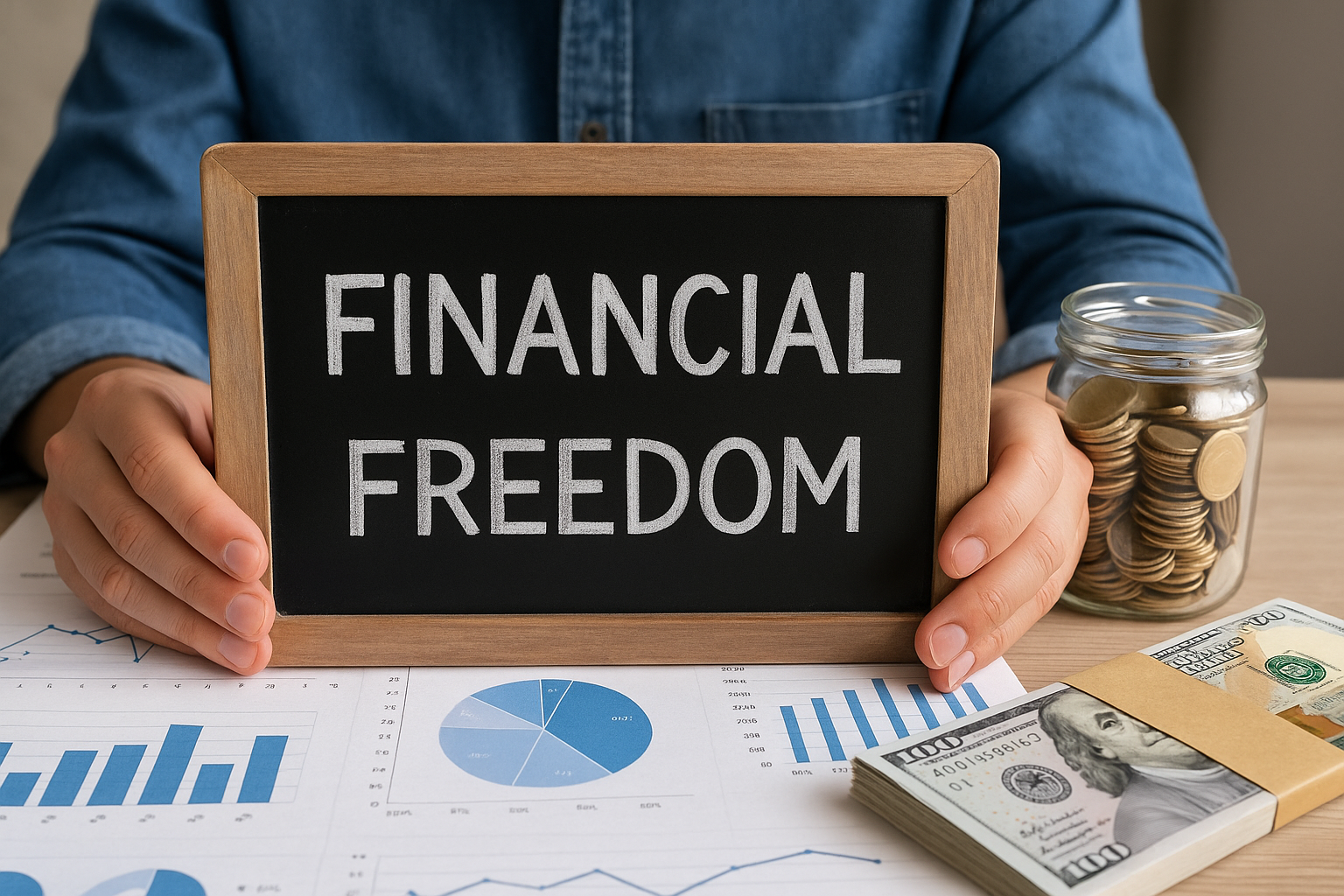Imagine waking up knowing your bills are covered, your savings are growing, and you have the freedom to choose how to spend your time—not just survive to your next paycheck. That’s financial freedom—and it’s not just for the wealthy.
Anyone can achieve financial freedom with the right mindset, plan, and consistent effort. In this final article, we’ll explore what it means, why it matters, and how to start your journey today.
What Is Financial Freedom?
Financial freedom means having enough savings, income, and investments to cover your living expenses without depending on a job you don’t want or worrying about money constantly.
It’s not about being rich. It’s about having control over your money—and your life.
Financial freedom gives you:
- The ability to retire early (if you want to)
- Time for family, travel, or passion projects
- Protection against financial emergencies
- Peace of mind and less stress
- The power to say “no” to things that don’t serve you
Step 1: Define What Freedom Looks Like for You
Everyone’s version of freedom is different.
Ask yourself:
- What kind of life do I want to live?
- How much money would I need to support that lifestyle?
- Do I want to travel, work part-time, start a business, retire early?
The more specific you are, the easier it is to plan.
Step 2: Get Your Finances in Order
Before you can grow, you need a solid foundation.
Focus on:
- Building an emergency fund (3–6 months of expenses)
- Creating and sticking to a realistic budget
- Paying off high-interest debt
- Avoiding unnecessary new debt
- Setting monthly savings goals
Small, consistent wins create long-term momentum.
Step 3: Live Below Your Means (But With Joy)
Financial freedom starts by spending less than you earn—every month.
- Choose intentional purchases
- Delay gratification when needed
- Say no to lifestyle inflation
- Find joy in simple habits, not stuff
- Focus on freedom, not status
This doesn’t mean deprivation—it means control.
Step 4: Save and Invest Consistently
Saving money is important. Investing it is essential. It’s how your money starts working for you.
Key strategies:
- Invest through retirement accounts (401(k), IRA, etc.)
- Use low-cost index funds or ETFs
- Automate monthly contributions
- Reinvest dividends
- Stay in for the long haul—ignore short-term market noise
Time and compounding are your greatest allies.
Step 5: Build Multiple Streams of Income
Relying on one paycheck keeps you vulnerable. Financial freedom often includes income diversity.
Ideas:
- Start a side hustle
- Invest in dividend-paying stocks
- Create digital products or services
- Rent out a room or property
- Build a business or freelance career
Use extra income to grow your investments—not your expenses.
Step 6: Track Your Progress and Adjust
Make your journey measurable and motivating.
- Track your net worth monthly or quarterly
- Celebrate milestones (first $1,000, debt-free date, etc.)
- Revisit your budget as income or expenses change
- Adjust goals based on new dreams or realities
Progress keeps you committed.
Step 7: Protect Your Wealth
Freedom requires security.
- Get insurance (health, renters, life, disability)
- Keep your emergency fund topped up
- Avoid risky financial decisions or emotional investing
- Stay aware of scams and overspending triggers
- Have a simple will or estate plan in place
Preserving wealth is just as important as building it.
Final Thoughts: Freedom Is Built, Not Bought
Financial freedom isn’t a fantasy—it’s a process. You don’t need to be perfect, rich, or lucky. You just need to be intentional, consistent, and willing to grow.
Start with small steps. Build good habits. Let your money reflect your values. And remember: the goal isn’t just to have more—it’s to live better.
You’ve got this.


Sem comentários